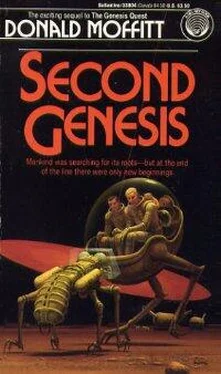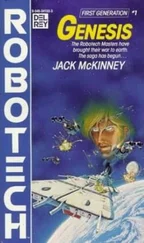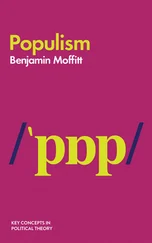One of the other zoologists, a freckle-faced fellow, grinned crudely. “What a way to inhale,” he said.
Harld looked annoyed. “It was an obvious evolution-dry step—that’s where the gills were, with their ready-made oxygenating apparatus. In human beings, the embryonic gill structures are derived from the upper alimentary canal—and that’s why breathing and swallowing are interrelated in us.”
The shadowy memory nagged at Bram. There had been something, a long, long time ago…
Harld was saying, “So it was through these aquatic forms that evolution got around the problem of the breathing spiracles that had formerly placed limits on the size and intelligence of land insects. Plus the modification of the exoskeleton into a partially internalized support. It gave the Odonata access to the evolutionary niche previously occupied by the large mammals.”
“And now they’re the inheritors of the earth,” Bram murmured.
Harld frowned. “But first they had to learn how to reproduce in the nymphal stage. Without having to metamorphose into the adult winged form. Because otherwise the need to fly would have placed a limiting factor on their size.”
And then Bram suddenly remembered.
“It was an unstable allele. Original Man spliced a set of synthetic chimeras into dragonfly DNA. They were trying to modify the nymph to create an organism that would keep insect pests under control in their arctic regions. They thought it would remain an aquatic form and do man’s work for him. But it got out of hand.”
“What?” The three zoologists gave their full attention. “Do you know something of this, Bram?”
It all came flooding back. It had been buried for almost seven hundred years in a mind that had become overlaid by other experiences. Slowly at first, then with increasing fluency, Bram told them about the synthetic heterochronic gene that had made the self-reproducing hen’s egg possible—about the way a DNA chimera had been contrived out of genetic material derived from the dragonfly and the axolotl. How, generations later, Original Man had discovered the dangers lurking in the construct and had radioed a warning in a codicil to his first great Message. And how the Nar, accordingly, had suppressed the file—though it contained the seeds of man’s immortality. How he, Bram, a rare human apprentice in a Nar touch group, had stumbled upon the reference and confronted his mentor, Voth, with it. How the entire Nar nation had carried their burden of guilt and finally, stunningly, made amends.
“You’re saying, then, that it was the nymphal dragonflies that exterminated Original Man?” Harld asked.
His eyes were filled with horror. He was wondering, Bram knew, if it was all about to happen again.
“No, no,” Bram said. “Original Man solved the problem. Or thought he had. At great cost. The near destruction of his arctic ecology. But the mutation must just have been biding its time. It waited, buried in dragonfly nucleotides, for forty million years … fifty million years. Long enough for the human race to go the way of the dinosaurs and to be replaced by a dominant species evolved from rats. Long enough for the rat-people to go the way of humankind—according to that timetable of periodic extinctions that your department drew up when we first arrived at the Milky Way. And when the rat-folk were gone, there was an ecological niche vacant, waiting for a new intelligent, cooperating species about the size of a man. No mammal, no vertebrate, could have competed with such as the nymphs had become.”
All of them, the three zoologists and Bram, involuntarily looked over to the dissection table where the latest inheritor of the Earth lay. Harld swallowed hard.
“Man did this?” he asked.
“No, we must not be so arrogant,” Bram said. “Perhaps it would have happened without us.”
Harld opened his mouth as if he were about to say something further. But at that moment Jao came bursting into the improvised morgue.
“Better come quick!” Jao panted. “They’re on their way!”
“Here?”
“Yar. About a hundred of those ground vehicles of theirs. We’ve got to round everybody up and get out to the shuttles before we’re cut off.”
Bram whirled around to the three zoologists. “Get going. Put on your vacuum suits and tell everybody you see to do the same. We’re going to let the air out of this place.”
He turned to Jao again. “All right, let’s start deputizing people. How many of those shuttles are ready to be flown?”
“Enough—if we jam them full of people and dump everything else. In a couple of hours we can strap pallet rockets to some of them. It won’t take much of a boost to at least get them off the ground out of harm’s way. The pilots can finish their countdowns in space if they have to.”
“Good. Let’s get going.”
Jao was sweating. “There’s more,” he said.
“What do you mean?”
“Jun Davd’s been watching the ship through his telescopes. He radioed at almost the exact time our own lookouts saw the ground vehicles starting our way.”
A chill ran down Bram’s spine. “Go on,” he said.
“More of the environmental bubbles are detaching themselves from the stick-ship. They’re just boiling off it. Drifting down to the rim of the diskworld. And some of them are heading toward Yggdrasil.”
“He went back for the Rembrandts,” a terrified assistant babbled. “He said he couldn’t bear to leave them behind.”
Bram shook the man into coherence. “How long ago?”
“About two hours ago. He took a walker.”
Bram released him. “The fool,” he said. “The idiotic fool.” He pushed his way across the crowded shuttle deck to the raised platform of the control section, where Jao stood conferring in low tones with the pilot.
The pilot turned a worried face toward him. She was a big-boned woman with brown curly hair, a member of Lydis’s comet-chasing squadron and, therefore, a crack flyer. “We’re ready to go,” she said. “We ought to lift off within the half hour or…”
She trailed off and glanced meaningfully out the arbitrary forward port across the pale ribbon of landscape.
“Is everyone else accounted for?” Bram asked Jao.
“Yar. The curator was accounted for, too, on our preliminary name check. He must have slipped away right afterward.”
“He ought to have been back by now. Unless something happened to him.”
Jao, without apology, reached past the pilot and punched a telescopic view of the plain into one of the screens. He adjusted the angle of incidence until he got what he was looking for, then refined the focus. Bram saw a thin haze of dust, its forward edge advancing, its rearward margin slowly settling.
“Less than fifty miles away,” he said. “They could be here in an hour.”
Bram checked the latches of his helmet before putting it on. “I’d better go look for him.”
“Are you crazy?” Jao exploded. “There isn’t time. If he doesn’t get back in time for lift-off, we’ll have to leave without him.”
Bram turned to the pilot. “Don’t wait for me,” he said. “I’ll keep in radio contact, but if I go off the air or if I’m late, lift off without me. Is that understood?”
“I’ll wait till the last possible moment, Year-Captain,” the pilot said.
“Don’t cut it too fine,” Bram said. He lifted the helmet to his shoulders.
Jao retrieved his own helmet. “I’m going with you. No argument.”
They squeezed into the air lock together. “Leave the outside door open.” The pilot’s voice rang in his radio. Jao nodded and deployed a rope ladder, but they didn’t waste time using the ladder to climb down; they let themselves drop, with a little shove to speed them on their way.
Читать дальше












